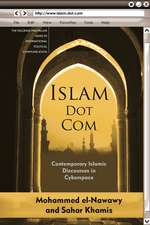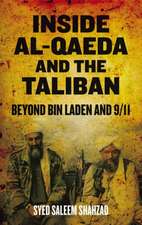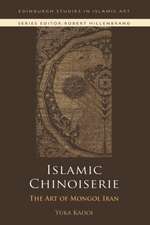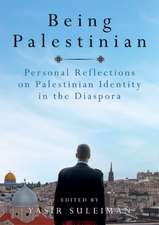Arabic in the Fray
Autor Yasir Suleimanen Limba Engleză Paperback – 30 iul 2013 – vârsta de la 22 ani
| Toate formatele și edițiile | Preț | Express |
|---|---|---|
| Paperback (1) | 194.50 lei 3-5 săpt. | |
| EDINBURGH UNIVERSITY PRESS – 30 iul 2013 | 194.50 lei 3-5 săpt. | |
| Hardback (1) | 645.42 lei 3-5 săpt. | |
| EDINBURGH UNIVERSITY PRESS – 22 iul 2013 | 645.42 lei 3-5 săpt. |
Preț: 194.50 lei
Preț vechi: 216.96 lei
-10% Nou
Puncte Express: 292
Preț estimativ în valută:
37.22€ • 38.97$ • 30.87£
37.22€ • 38.97$ • 30.87£
Carte disponibilă
Livrare economică 20 martie-03 aprilie
Preluare comenzi: 021 569.72.76
Specificații
ISBN-13: 9780748680313
ISBN-10: 0748680314
Pagini: 320
Ilustrații: 16 b&w illustrations
Dimensiuni: 155 x 231 x 20 mm
Greutate: 0.5 kg
Editura: EDINBURGH UNIVERSITY PRESS
ISBN-10: 0748680314
Pagini: 320
Ilustrații: 16 b&w illustrations
Dimensiuni: 155 x 231 x 20 mm
Greutate: 0.5 kg
Editura: EDINBURGH UNIVERSITY PRESS
Notă biografică
Cuprins
Introduction; 1. Language Construction and Language Symbolism; 2. (In)imitability, (un)translatability and Intergroup Strife; 3. Framing Arabic: Paratext, Poetry and Language Ideology; 4. Hybridity, Language and Cultural Politics; 5. Through the Looking Glass: Arabic, Thought and Reality; Conclusion; Bibliography; Index.













